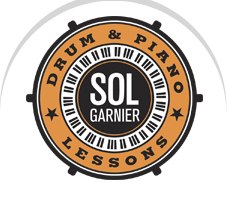Among the people deciding whether to take on a new hobby, some of them must first chose what they want to do. Should they collect stamps? Should they create woodworking masterpieces? Ha! I’ll also give you a very brave one: should they change their body? That goes with working out regularly and dieting that one. And a ton of determination too. But everything done correctly implies time and repetition and digging into resources and long term thinking, all these tedious things that is usually the opposite of vegging on a couch while yelling at Fox News with spits of chips flying towards the TV.
Right!
In the lot of hobbies, there’s music. Any music studies. From singing (doesn’t require much gear) to organ playing (that instrument cannot be carried with one hand). So music. But why music?
Well, there is something physical about music. Even in voice, singers have to have a healthy diaphragm. From that, you get to the fingers (All keyboard instrument fall into that category), arms (Strings instrument!) or the whole body (I’m talking about the drum set here). Wind instruments are demanding also, don’t overlook them.
But, in all honesty, the physical demands of the studies of an instruments are nothing, and I mean nothing at all compared to the challenges it presents to the mind. There relies all of the excitements and the efforts of the musician.
No matter your age, no matter your education, music will explore some unknown areas of your brain. It is built in the subject itself, so to say. The only challenge it will not provide are for the rare ones among us who are already persistent, tenacious, stubborn towards anything they do in life. Those are very well geared to tackle the challenges of music. But music will still find a way to challenge their mental abilities.
I’ll give you a few examples relating to drums: speed, coordination, dynamics, contrast, independence of the 4 limbs, memorizing some common styles of music, reading rhythms, understanding the structure of a beat, of a song, improvising, etc. The list goes on and on. For piano, you can add to that list, reading in treble and bass clef, independence of the 10 digits, harmony, memorizing some pieces of the repertoire, transposing different instruments, phrasing, classical repertoire (something drummers do not have), etc… the list also goes on and on.
One might argue that some of those are physical instead of being mental challenges. I’m talking about speed and nimbleness on the instrument for example. Well, we are usually talking about muscle memory, something acquired through repetition, tenacity and problem solving. So, not really pure physical strength here. If you’re not convinced, try comparing weight lifting and mastering a roll with a pair of sticks.
I recommend music because it can be approach by everybody, from the very young to the senior adult. It can be played by itself, especially with the most “complete” instruments like the piano or the guitar, or it can be played with others and be a social outlet, and here, I am looking at almost all the wind instruments, a great part of the percussion instruments, and most of the string instruments like the violin, viola, cello, bass, etc…
Music will always be a great way for people to get their brain working. There are no exception for anybody. Study music and you study the way the cogs of your intelligence work together. Work out for the smart and work out to be smart. What’s not to like?
